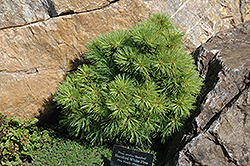Fri & Sat 8am - 8pm
Sun 8am - 7pm
Anytown, USA 12345
fax: 261.787.0463
e-mail: info@successgc.com


Plant Finder

Height: 18 inches
Spread: 18 inches
Sunlight:
![]()
Hardiness Zone: 3a
Other Names: Eastern White Pine
Description:
A very compact evergreen garden shrub with a dense, mounded habit of growth and lime-green foliage; hardy and slow growing, excellent for form, texture and color detail in home gardens or for rock gardens; needs full sun
Ornamental Features
Horsford White Pine is a dwarf conifer which is primarily valued in the garden for its ornamental globe-shaped form. It has bluish-green evergreen foliage which emerges lime green in spring. The small needles remain bluish-green throughout the winter.
Landscape Attributes
Horsford White Pine is a dense multi-stemmed evergreen shrub with a more or less rounded form. It lends an extremely fine and delicate texture to the landscape composition which should be used to full effect.
This shrub will require occasional maintenance and upkeep. When pruning is necessary, it is recommended to only trim back the new growth of the current season, other than to remove any dieback. Gardeners should be aware of the following characteristic(s) that may warrant special consideration;
- Insects
- Disease
Horsford White Pine is recommended for the following landscape applications;
- Mass Planting
- General Garden Use
Planting & Growing
Horsford White Pine will grow to be about 18 inches tall at maturity, with a spread of 18 inches. It tends to fill out right to the ground and therefore doesn't necessarily require facer plants in front. It grows at a slow rate, and under ideal conditions can be expected to live for 50 years or more.
This shrub should only be grown in full sunlight. It is very adaptable to both dry and moist growing conditions, but will not tolerate any standing water. It is not particular as to soil type, but has a definite preference for acidic soils, and is subject to chlorosis (yellowing) of the foliage in alkaline soils. It is quite intolerant of urban pollution, therefore inner city or urban streetside plantings are best avoided, and will benefit from being planted in a relatively sheltered location. This is a selection of a native North American species.
